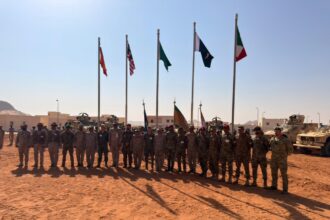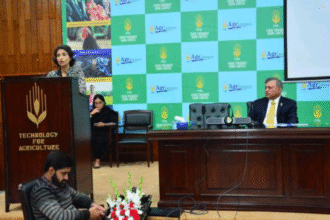KAMRAN KHAMISO KHOWAJA
SUJAWAL: The Ismaili community in Sujawal district is nostalgically reminiscing about Prince Karim Aga Khan’s historic and pivotal visit to Sujawal town on December 24, 1964. This momentous occasion facilitated a profound and enduring connection between Prince Karim Aga Khan and his devoted followers in the region.
Nawaz Ali, nearing his 70th birthday, enthusiastically shared his exhilaration and fond memories about encountering Prince Karim Aga Khan during his inaugural visit to Sujawal in 1964. “We were all electrified to meet our revered spiritual leader, and eventually, the moment arrived when he graced the dock Banglow ground of Sujawal, where thousands of his ardent followers eagerly awaited,” Nawaz Ali poignantly recalled. He further elaborated that people from nearby villages, such as Tarr Khowaja, Tar Ali Pur, and Jati, embarked on ox carts, horses, and by foot to catch a glimpse of their beloved leader.
Ghulam Ali Chagla, who is poised to witness the accession ceremony of the 50th Spiritual leader of the community, articulated that the visit of Prince Karim Aga Khan to Sujawal was a watershed moment in the history of Thatta district. It paved the way for numerous projects subsequently launched by him for the local communities, culminating in educational and social uplift of the local Ismaili community and inspiring other sister communities.
Prince Karim Aga Khan traversed various parts of the country to engage with his followers residing in remote areas from 1958 to 1964. During this period, he visited Buhara, Mirpur Sakro, Tando Bago, Tando Muhammad Khan, Sujawal, and Muhammad Abad villages of district Thatta and Badin. He addressed large gatherings of his followers, accentuating the importance of education, unity, agricultural development, and the formation of cooperative societies.
Barkat Ali Ahmed Ali, a key leader of the local Ismaili community, noted that in the aftermath of the visit, local community members, led by Advocate Natho Khan, converged to devise strategies for a brighter future. He further observed that a decade after the visit, the local community witnessed an unprecedented surge in literacy rates, with youth seeking admissions in various schools and colleges, and parents, despite facing destitution, endeavoring to educate their children.
Piyar Ali Hajani, a local social activist, added that the institutes established by Prince Karim Aga Khan, primarily the Aga Khan Social Welfare Board and the Economic Planning Board, enlightened local growers about modern methods of land cultivation. The Aga Khan Health centers were inaugurated in remote areas of Thatta district and Sujawal districts. The first-ever Aga Khan School in district Thatta was renovated in 1970, and teachers from Aga Khan School Tarr Khowaja were selected during Muhammad Khan Junejo’s government to train teachers of public-sector schools.
Dr. Aijaz Rahi, a representative of the World Health Organization, acknowledged the significant advancements in the health sector under the leadership of the Late Aga Khan. The local Ismaili community has made substantial contributions to the development of Sujawal district, establishing the first-ever cooperative society and housing society of Thatta district. The community boasts the highest literacy ratio and has inspired numerous fellow communities to engage in voluntary service in the fields of education and health.
Notable individuals from the community, including Dr. Ghulam Ali Allana, Dr. Mansoor Ali, Dr. Wazir Ali, Dr. Nasir, Der Umeed Ali, Ashiq Ali Karimi, Imam Dino Khuajawa, Natho Khan, and Amir Ali Khowaja, have served as high-ranking officers in education, health, and revenue departments of district Thatta. Following subsequent guidelines from the spiritual leader, libraries, community centers, vocational training centers, and youth organizations were established to support the government in uplifting local communities and providing assistance during crises.
A former leader of the community, Khamiso Muhammad Khan, stated that organizations such as the Young Student Association, Youth and Sports Boards, and Work No Word were specifically formed to facilitate student-related issues. During the flash floods of 1988 and 1974, the cyclone of 1999, and the flood of 2010, the emergency response team of the community collaborated with government officials to execute their duties efficaciously.
The senior leaders of the community have pledged to stand by the 50th spiritual leader in furthering the community’s development and progress. As Shah Rahim Al Hussaini Aga Khan succeeds Prince Karim Aga Khan, the community looks forward to a new era of growth and prosperity under the guidance of their new spiritual leader.






